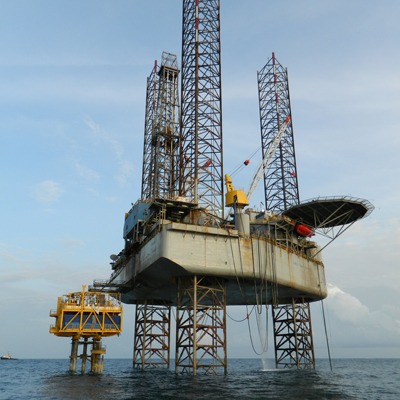
CONDUCTOR SUPPORTED PLATFORMS; REVEALING THE TRUTH
For the field development engineer striving to deliver the most cost-effective concept design for a shallow water development, there are a number of routes to take.
One often overlooked option is the conductor supported platform. Sometimes, persistent misconceptions lead field development planners to quickly write-off these offshore platforms as a solution, but could something like our Sea Swift platform be key for your development?
It is an extremely cost-effective option – one that can accelerate time to production and is suitable for a far wider range of conditions than commonly assumed.
WHAT IS A CONDUCTOR SUPPORTED PLATFORM?
Simply put, a conductor supported platform is a more flexible and cost-effective alternative to a traditional jacketed structure. A conductor supported platform provides all the dry tree functionality of a jacket supported platform, but the well conductors themselves are used as the structural and foundational support for the topsides.
WHY CHOOSE A CONDUCTOR SUPPORTED PLATFORM?
There are many benefits to a conductor supported platform including:
- Cost: with a modular design, they can be installed using a jack-up rig that’s likely already in place.
- Weight: by using a conductor for structural support, the system is much lighter.
- Flexibility: the work can be split over multiple fabrication yards, offering more competitive pricing and more choice to increase local content via local yards.
- Speed: you can install the conductors and subsea support structure and then begin drilling right away, without waiting for the topside to be installed.
SO WHY AREN’T THEY AS PREVALENT OFFSHORE?
Misconceptions around water depth and boat collision are two key reasons why conductor supported platforms can be discredited early on, but what’s the truth?
Myth 1: Conductor supported platforms are only suitable for shallow, benign ocean conditions
They’re not a deep-water technology – that’s true – they are suitable for water depths of up to 100m and excel in depths up to 65m. Today, they’re widely deployed in oceans with benign wave conditions.
But conductor supported platforms are capable of withstanding the most extreme events. If properly designed for fatigue, then they will always be able to withstand the most severe conditions.
Myth 2: Boat collision regulations preclude conductor supported platforms
Rules vary by location, but many take a blanket approach of perceived best practice everywhere. The key, here, is to focus on “reasonably foreseeable collision events”, and take a risk and evidence-based approach to deciding what they are.
THE TRUTH
Conductor-supported platforms are well-known to too few field development planning engineers, and well-understood by even fewer. In a sense, they are the industry’s best kept secret. Engineers looking for a dry tree solution for a shallow water development should find conductor-supported platforms, such as our Sea Swift platform, to be a viable and attractive option. With better insight on their benefits, there’s a huge opportunity for conductor-supported platforms to be more widely deployed.
To find out more about how Sea Swift could help on your next project get in touch at: norwich@aquaterraenergy.com